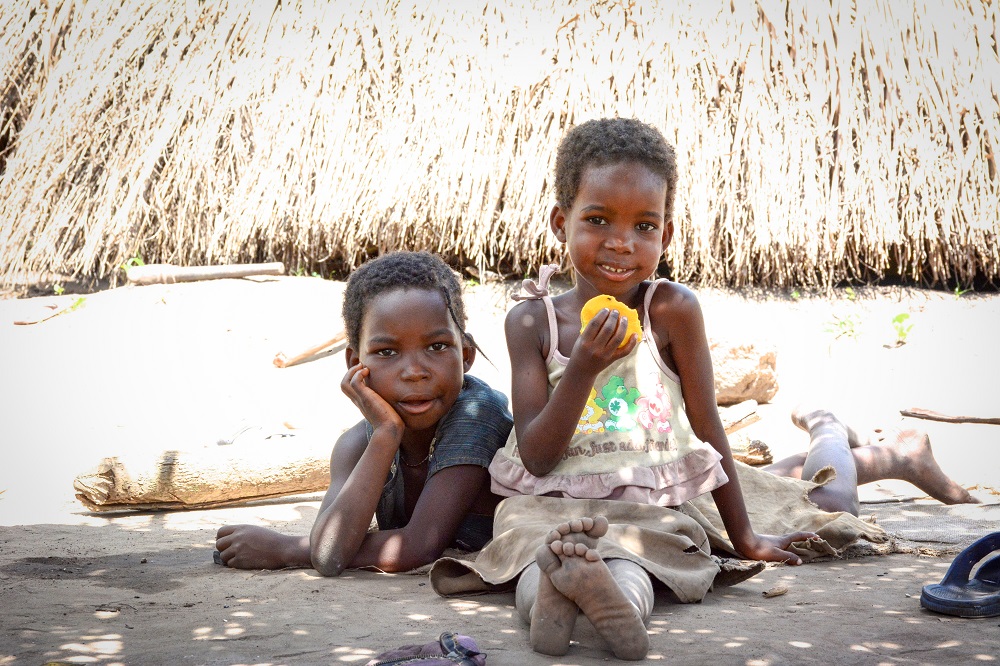Earlier this month, Relevant Magazine interviewed Jessica Bousquette, World Vision policy advisor for child protection, about the state of South Sudan amidst a conflict that has been going on since 2013. Since the conflict began, violence has displaced over 900,000 children within South Sudan — keeping them from school and putting them at greater risk for malnutrition and exploitation — including child soldier recruitment. Over the past two years, over 400 advocates have sent messages to the President to bring awareness to this conflict and the impact it is having on children.
Recently, a U.N. report outlined some of the atrocities committed against civilians. Is the violence still prevalent?
We have seen all sides of the conflict commit crimes that are against civilians. We’ve seen the number of children recruited by armed groups on both sides go up by about 75% since this time last year, and it really has just continued to escalate.
We do have a lot of concerns about the way that that impacts children and their ability to access education, and really live in an environment where they’re free from the fear of violence against themselves and against their communities.
Are there ways for people to become politically involved to advocate on behalf of peace and the people of South Sudan?
As Americans, we always have the opportunity to use our voices on behalf of the most vulnerable in the world. The humanitarian response plan, which is set up by the United Nations and the non-profits who are working in South Sudan, right now is only 9% funded. We are looking at a rainy season starting in a couple of months, and about half of South Sudanese are in need of life-saving humanitarian assistance.
Delays in getting that funding out are deadly delays for children in South Sudan.
People can call their member of Congress, and they can say, “I want the US to support the South Sudanese people. And one of the ways we can do that is by insuring that we have strong and robust funding to our International Disaster Assistance and our Migration and Refugee Assistance accounts, when the U.S. is creating their budget.”
Because that’s the funding that is going to go to the South Sudanese people as they’re dealing with chronic hunger and lack of livelihoods, opportunities and education (These are the same accounts currently supported by World Vision’s advocacy ask to support Syrian refugees [action expired]).
You were in the country last year. Were you hopeful about the future of South Sudan?
I was hopeful. I was hopeful, because I remembered a young girl that I had met the previous time I had been in South Sudan. I had been there twice in a year, about 10 months apart, and the first time I was there I had a chance to sit down with children and ask them about the risks that they faced as a result of being displaced.
Elizabeth at the time was really quite frustrated because, she said, “People keep going back and forth to Ethiopia to talk about peace, and still there is no peace. And while the world watches and waits there is still no peace.”
She encapsulated this frustration and desire of a lot of the children we spoke with: That they couldn’t go home because there wasn’t peace. They couldn’t go to school because there wasn’t peace.
When I was there in August. and I was witnessing the beginnings of the peace agreements and the beginning of the hope for peace for people, I thought back to my meeting with Elizabeth, and thought, “Now there is at least something on paper that gets us towards peace, and gets us towards children being able to go home and back to school.”
In South Sudan, we have yet to see a generation of children who have not experienced violence in conflict. For the last several decades South Sudan has had to grapple with conflict, and so to have the opportunity for peace is a huge step in the right direction.
Photo: Sisters—Jenti 7 and Mary 8, pictured at their home in Bazungua, Western Equatoria State. The girls are currently not in schools because their home village is far away from school. Most girls in South Sudan drop out of school before completing primary education. The girls look happy but they miss their mother who passed 2 years ago after delivering their younger sister. © 2015 World Vision/ photo by Abraham Nhial Wei


